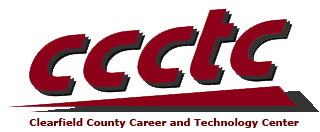Patient Care Technician
Become a Patient Care Technician
What Is a PCT?
A Patient Care Technician is a certified nursing assistant (CNA) who has received additional training on how to perform advanced skills such as urinary catheter insertion/removal, EKGs, venipuncture (phlebotomy), IV removal, and more.
- The CNA portion of the course provides training on transferring, ambulating, positioning, and moving patients, measuring vital signs and weight, performing personal hygiene and grooming, feeding, and bed making.
- The PCT portion of the course provides training on phlebotomy, EKGs, Infusion (IV) skills, catheter insertion/removal skills, enema administration, and more.
Job Outlook for PCT’s: The Bureau of Labor Statistics reports that Patient Care Technicians can expect a growth in demand of 17% from 2014 to 2024, which is much faster than the average for most other professions. The average salary for a patient care technician is $16.66 per hour in Pennsylvania (Indeed.com).
How can I get certified as a PCT? To get certified as a PCT, enroll in CCCTC’s PCT program! Concurrently, you will receive CNA training making you eligible to take the PA State Nurse Aide Exam. In Pennsylvania, most job descriptions for PCT’s state that you must meet one of the following criteria within 1 year of becoming a PCT: 1. CNA certification, 2. EMT certification, or 3. One semester of LPN or RN education. With CCCTC’s PCT program, you will earn a dual certification of CNA and PCT – meeting the requirements to work in Pennsylvania as a Certified PCT.
Where can I work as a PCT? PCTs can work in multiple healthcare settings. These settings include hospitals, dialysis centers and urgent care centers. In these settings, PCTs can work in:
- Emergency Rooms
- Medical-Surgical Units
- Dialysis Units
- Doctor’s Offices
- Urgent Care Centers
PCT Enrollment Requirements: PA State Police Criminal Background Check
- FBI Fingerprinting/Background Check
- Child Abuse Clearance
- Negative Two-Step TB test within past 1 year
- Physical – (able to lift 40#) within past 1 year
- High School Diploma, GED, or opt to take TABE test
- Two Forms of Identification (Driver’s License, Passport, Social Security Card, Government Issued ID, etc.)
- If you have received your Covid-19 vaccination, please provide a copy of your immunization record
- Student Liability Insurance – $40.00, www.nso.com, select Patient Care Technician Student
Necessary Equipment/Supplies for Class:
- Blood Pressure Cuff and Stethoscope
- 3 Ring Binder (2”), pen, paper
PCT Certification: Upon completion of the PCT course at CCCTC, you will be eligible to sit for the National Health career Association’s PCT certification examination. Upon passing the NHA’s exam, you will be recognized as a CPCT (Certified Patient Care Technician).
2021 PCT Class Schedule: September 30, 2021 – Orientation 4-6 pm, Room 205; Class October 13, 2022-December 30, 2022
Class/Lab: at CCCTC, Room 205, 3:30-9:30pm
Clinical Rotation #1: Skilled Nursing Facility, 3-11pm
Class/Lab: at CCCTC, Room 205, 3:30-9:30pm
Clinical Rotation #2: Urgent Care Center, Dialysis Center, Acute Care Facility
2021 PCT Program Cost: $3,500.00 (subject to change)
$2,900.00 (CCCTC graduate discount)
To Register: Call 1-814-765-5308, email hryan@ccctc.edu or kgallaher@ccctc.edu, or stop in at 1620 River Road, Clearfield, PA 16830. You can also visit us at www.ccctc.edu.
Questions about the PCT program: Call 1-814-590-7081 or email aryen@cctc.edu or jryen@ccctc.edu.
Additional PCT info: As a PCT, you’ll play a critical role in patient care, not matter what type of facility you work in. And, with a PCT certification, there are a variety of different career opportunities to choose from. PCTs work hand in hand with doctors and nurses in hospitals, doctor’s offices, and long-term care facilities, providing standard and advanced clinical duties. PCTs must recognize the individual needs of their patients, and work with all other healthcare professionals to crate personalized care plans to treat them. This includes card for and preventing disease and injury, restoring optimal wellness through rehabilitation, educating patients and families, and more. Certified PCTs serve meals, change bedding, and handle safety checks. However, they can also perform more important hands-on medical duties such as drawing blood, administering IVs, and measuring/monitoring vital signs. Many people use the PCT certification and their first job as a stepping stone to becoming a Registered Nurse. Whether you want to work in a home or a healthcare facility, a PCT certification will give you a variety of career options to choose from.

